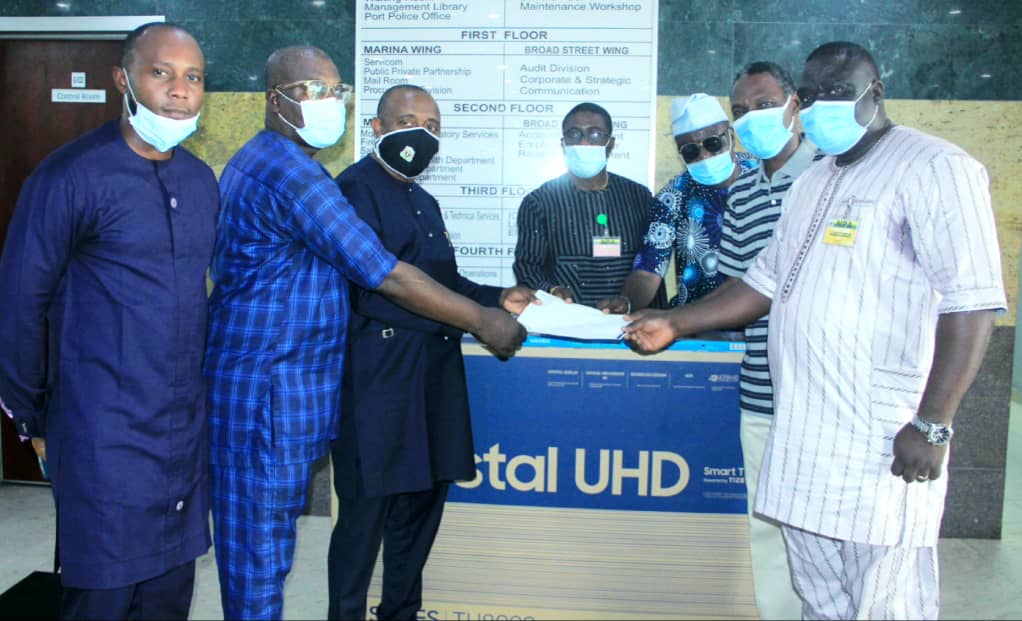Rather than innovative synergy between the federal government and Airline Operators of Nigeria (AON) on how best Nigerian airlines will play take advantage of the liberalisation of African airspace, known as Single Africa Air Transport Market (SAATM), both parties in less than one month of the deal have started fighting themselves in the public.
Only last week, the Minister of State for Aviation, Senator Hadi Sirika, alleged that AON is suffering from amassed N513billion debts owed the agencies in the country’s aviation industry
Sirika had told journalists in Lagos last week that Nigerian airlines were ridden with debts, describing them as weak and unable to compete and take advantage of the liberalisation of African airspace, known as Single Africa Air Transport Market (SAATM).
Though the Minister failed to give details of the debt, the management of the AON has challenged the minister, saying he must prove the allegation of N513billion debts owed the agencies in the country’s aviation industry.
According to the operators, the minister was reeling out figures offhand without any document of proof.
The Chairman of AON, Capt. Nogie Meggison, in an interview, insisted that the government could not prove any of the debts allegedly owed by the airline operators, stressing that the agencies lacked the ability to transparently record their revenues and document accurately, debts owed them by the airlines.
According to AON boss, “Airlines in Nigeria had consistently asked government agencies to list the debts and they have failed to come up with documented evidence.
Meggison said “It is easy to call numbers. Let those we owe bring their bills and explain the debts. Although government cannot be held responsible for the operation of privately owned airlines, but the Asset Management Corporation of Nigeria (AMCON), is competing with airlines, running two airlines with tax payers’ funds. So, we don’t have a level playing ground because AMCON is a competitor, using the taxes we pay to compete with us. When are they going to leave the airline industry?
“Talking about debts, airline business is not a cash business you accrue the charges you are presented a bill and you pay. No airline in this world that does not owe,” Meggison said.
Giving more emphasis on SAATM, Meggison averred that for the new policy to work, Africa Civil Aviation Commission (AFCAC), should provide a level playing field, saying every member country should charge the same amount of money from one country to another.
He said one of the key factors that will frustrate Nigerian airlines from gaining more from the SAATM remains the way and manner Nigerian banks kill businesses with unmeetable conditions in loan requests.
“Now, operators in Nigeria borrow at 24 per cent interest rate, pay 5 per cent to the Nigerian Civil Aviation Authority (NCAA), and also 5 per cent Value Added Tax (VAT), which are waived by governments of other countries for their own airlines. The question is how can AON members survive under this loan access structure?
“Meggison said apart from government’s policy inconsistency, Nigerian airlines that wish to boost fleet so as to pay stronger in the SAATM need to borrow from banks.
Also, his speech at 30th Ordinary Session of the Assembly of Heads of State and Government in Addis Ababa, Ethiopia, on Monday, 29 January 2018, President Muhammadu Buhari further buttressed the need for accelerated creation of a single and unified market in Africa.
He said “It is Nigeria’s position that as African leaders and principal architects of our union, we must now speed up action to conclude the negotiations and establish the CFTA.” Furthermore, the President underscored the economic benefits of the CFTA; “The primary objective is economic namely, for trade in goods and services on the continent. A single, unified market would lead to a comprehensive and mutually beneficial trade agreement amongst African Union Member States. If we integrate Africa’s market for trade in goods and services, we will not only double intra-African trade, but also negotiate with other regions or continents on trade matters.”









